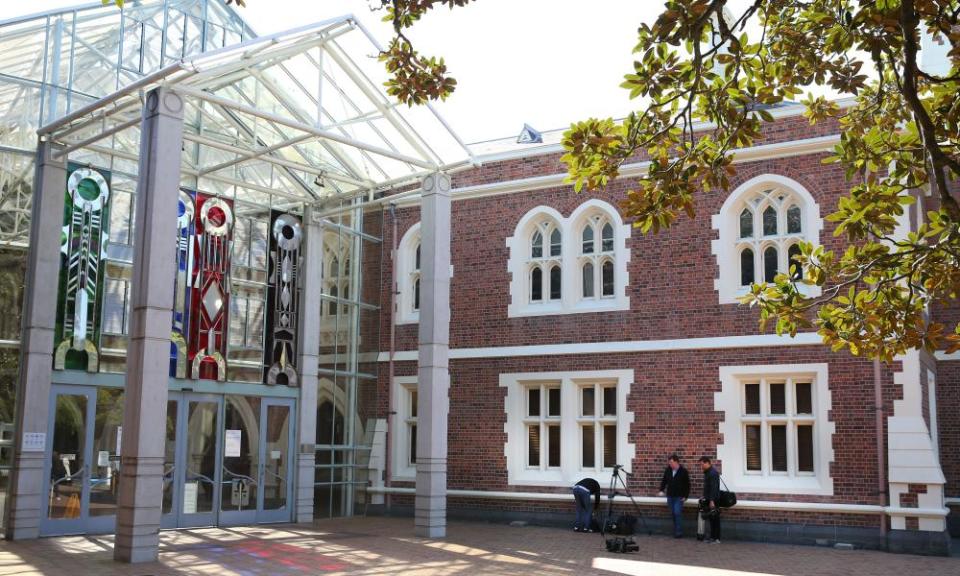‘Explosion of ideas’: how Māori concepts are being incorporated into New Zealand law

When English settlers first arrived in New Zealand, they brought with them pests, diseases and England’s common law. Indigenous Māori already had legal customs in the form of tikanga, a set of rules and principles which governed daily life. But the settlers dismissed Māori as “savages” and tikanga as primitive. As their power grew, so did the common law’s. Eventually, though many Māori still followed tikanga, it was pushed to the legal margins.
Related: How Māori women have reshaped New Zealand’s media through their native language
That is starting to change. In 2020 New Zealand’s supreme court allowed a dead man’s appeal to continue, apparently on the basis that his mana (the Māori concept of status) continues to fluctuate after death. This year the court quashed a mining company’s appeal over a resource consent application partly on the basis that it was inconsistent with tikanga.
“What we’re seeing now is a Cambrian explosion of activity where the superior courts are in several contexts affirming tikanga Māori,” says high court judge Christian Whata. It’s a shift which could profoundly alter the way New Zealand law is applied in areas as diverse as defamation and trust law. Ultimately, it represents the indigenisation of a legal system which has been dominated by English thinking since its inception.
Whata is uniquely placed to speak about tikanga’s role. One of the few Māori serving in New Zealand’s higher courts, he has recently been appointed to the Law Commission (a government thinktank charged with guiding legal reform) to define and chart the future relationship between tikanga and state law.
He characterises the embrace of tikanga in law as the culmination of a long process. In the late 1980s, he says, New Zealand had “this little explosion of ideas” regarding legal recognition of the principles of the Treaty of Waitangi, New Zealand’s founding document. “That produced a momentum of its own … [But] what we didn’t see then was a recognition in a true sense of tikanga Māori.”
‘Law is a reflection of society’
It took four decades, but that recognition is now occurring in spectacular fashion. Importantly, its relative speed leaves a number of questions open for debate. “Individual aspects of it could occupy a doctoral thesis,” chuckles Whata. “What is tikanga? I’m not an expert on that. It’s a massive topic in itself. How can tikanga be used in a state law context? That’s its own topic. Should [we even] use tikanga in a state law context?” Despite the immensity of these questions and the courts’ usual preference for more incremental change, to some extent they have little choice but to keep up.
Natalie Coates is a prominent Māori lawyer who worked on both of the recent supreme court cases which engaged in this discussion of tikanga. According to her, it is tikanga’s resurgence in society outside courtrooms which is driving its recognition within them. Coates pointed to the respected use of rāhui (prohibitions on access or use) following the 2019 eruption of Whakaari/White Island as an example. “All the iwi (tribes) along the East Coast placed a rāhui to respect the fact that a number of people had died and there were bodies in the water … We were in the middle of summer. But nobody was in the water. It was overwhelmingly respected by the community.” Whata agrees: “Law is a reflection of society.”
That doesn’t mean New Zealand law’s embrace of tikanga is uncontroversial. Some oppose tikanga’s use altogether, with one prominent lawyer recently describing it as “a morass of unknown custom”. Others are worried the state will selectively or incorrectly use tikanga. Some point to the example of the Native Land Court, which was created in partnership with some Māori in the mid-19th century to settle disputes over property ownership, but was ultimately instrumental in the widespread expropriation of Māori land.
Related: ‘A neat trick’: critics aim to shift Aotearoa debate, but historical fidelity no longer matters
It’s an issue Whata is keenly aware of. “We obviously need to be careful that we don’t, via a process like this, engage in the assimilation of ideas, of tikanga values … I will be looking and taking a very cautious approach to that issue.”
Regardless of what he finds, it is noteworthy that these questions are being asked at all. Until relatively recently, it would have been difficult to imagine a sitting judge being tasked with planning whether and how tikanga and state law should interact.
Asked about the significance of his appointment, Whata laughs. “Have you heard the phrase, ‘the kumara doesn’t talk about how sweet he is’?” Instead, he says: “It’s a recognition of the importance of tikanga … We want to avoid the mistakes of the past and we want to put it on a much better footing … We want to lay the foundations as best as we can for addressing how we might recognise tikanga Māori and the values and laws of tikanga Māori in the state justice system.”

 Yahoo Finance
Yahoo Finance 